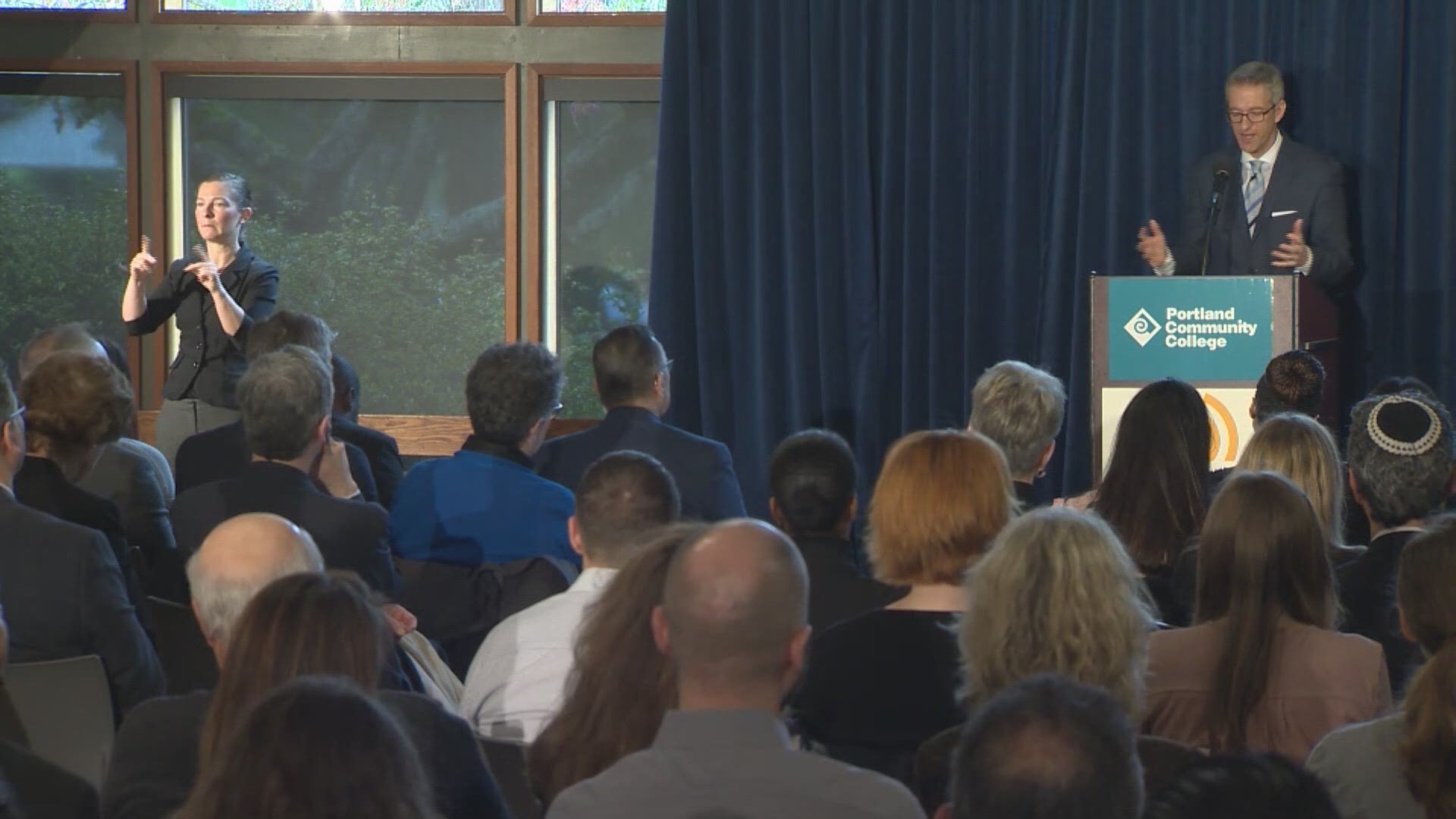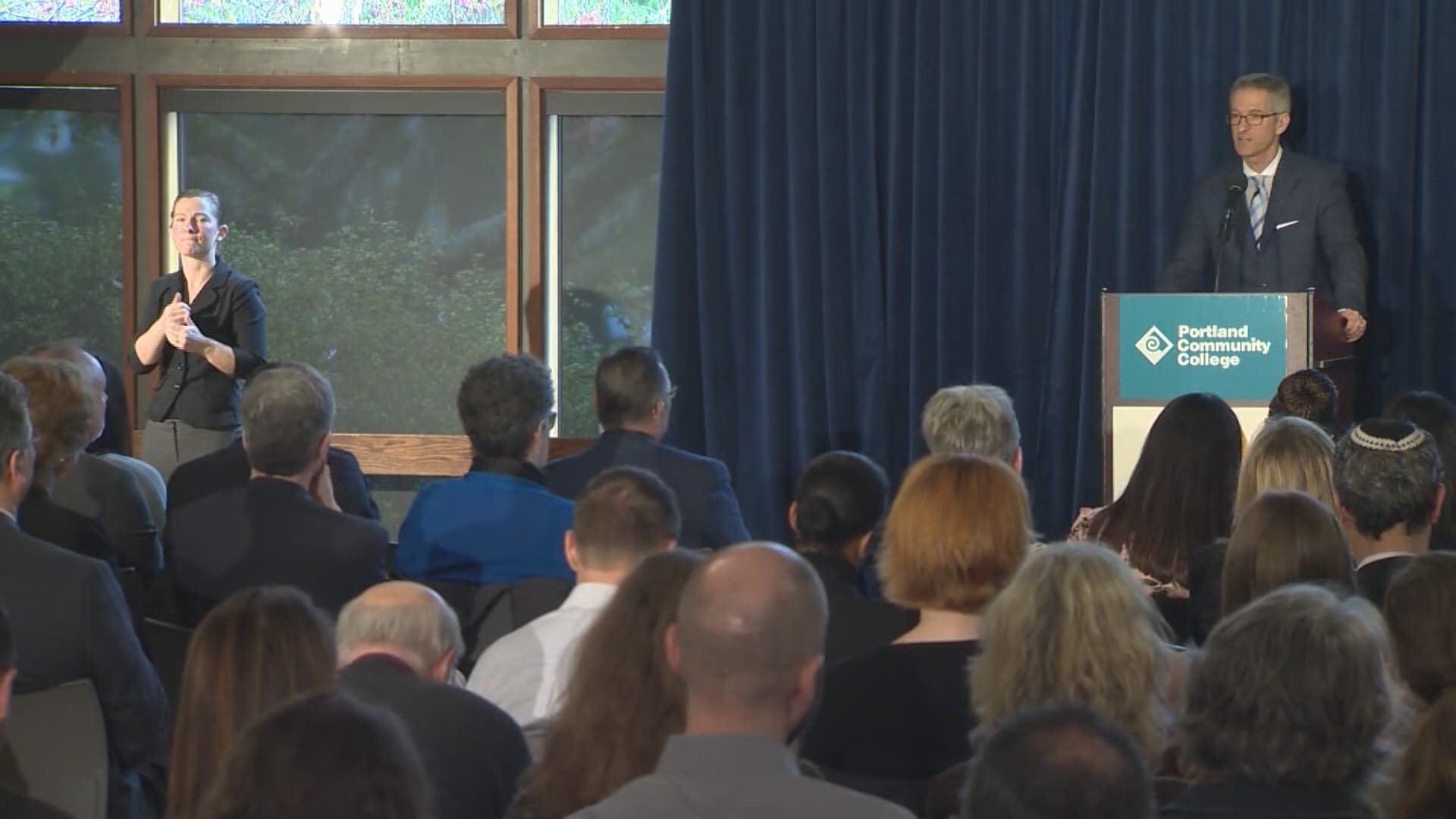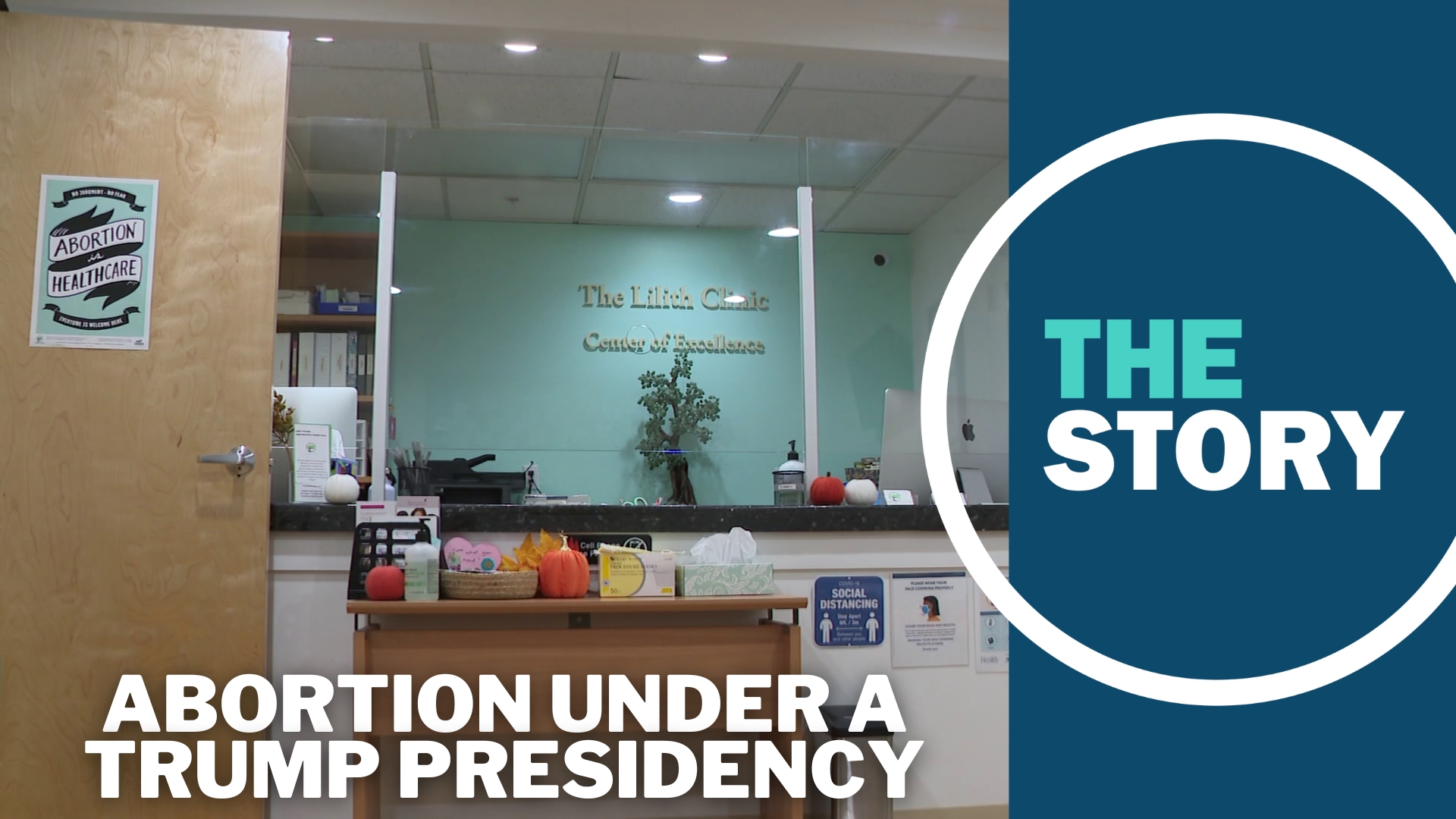PORTLAND, Ore. – As Portland grows at a breakneck pace, its progressive policies on social issues have put the city in the crosshairs of the White House. During his annual State of the City speech on Thursday, Mayor Wheeler defended the city’s policies and vowed to fight for climate change, gun control and the protection of immigrants, “even if it means going to jail.”
Wheeler moved the location of the annual speech to Portland Community College on Southeast 82nd Avenue, to bring more attention to the east side of the city.
Ted Wheeler took office in January 2017, immediately stepping in to a city struggling to deal with homelessness, poor infrastructure and skyrocketing housing prices.
Instead of addressing those issues off the bat, Wheeler started the speech by denouncing President Trump’s White House policy and rhetoric.
“Most Americans believe immigrants strengthen our country. And yet the rhetoric from Washington DC only serves to divide us,” he said. “Large majorities of Americans know climate change is real, that it is a threat to our planet and to humanity. And yet this administration is retreating from our global commitments.”
Wheeler said he will stand by his principles even if faced with criminal consequences.
“Some in the White House think that I, along with other like-minded mayors, should be arrested for our principled support of our immigrant communities,” he said. “I will continue to fight for our right to be an inclusive, welcoming city – yes, even if it means going to jail.”
Wheeler said Portland needs to become a national leader to institute change.
“Cities like Portland cannot wait on others. We must take this moment into our own hands. We must seize this opportunity and secure our own future according to our own vision and our own values,” he said.
Wheeler then moved to local issues, noting that 100 people are moving to the city every day, coming for new economic opportunities and a better quality of life.
“People are moving here because, along with our natural beauty, they love our beer, our coffee, our donuts. They love the creative, entrepreneurial feel of the city, our maker culture,” he said.
Wheeler noted the city’s issues of homelessness, housing, policing and economic development are challenging but also “opportunities to live our values.”
“We can’t continue to call ourselves a progressive city as so many of our neighbors live, and too often die, on our streets,” he said. “Homelessness represents nothing short of a humanitarian crisis. It is unacceptable to me, and I hope to you, and I expect us to continue to lead and innovate to find humane solutions to significantly reduce this problem.”
Wheeler promised to continue funding homeless initiatives at the same rate as in the past, even as he asks city bureaus to consider how they would work with a 5 percent budget cut.
He also praised Multnomah County for helping to increase shelter beds throughout the city, which he credited for reducing the county’s unsheltered population during the 2018 homeless count.
To address unaffordable housing prices, Wheeler said he is fostering new building permits and production, noting that 700 affordable units are projected to open this year.
“This will be the largest number of affordable units ever produced by the City of Portland in a single year in modern history. An additional 1300 units are beginning construction and will open their doors in 2019,” he said.
Going off-script, Wheeler quipped, "This is going to continue to be a real city, not a Disneyland for rich people."
Wheeler called on residents to pass a state constitutional amendment in November that would change how Portland can invest in affordable housing.
He admitted the city has a discriminatory history that has created housing segregation for people of color, especially in North and Northeast Portland. He did not lay out specific strategies for addressing housing issues among minorities, but promised to “right these wrongs.”
“The spirit of Portland is that of solutions,” he said.
Wheeler also addressed policing issues.
The mayor has been criticized by some community groups after deadly police shootings over the past year, including that of 17-year-old Quanice Hayes in February 2017 and earlier this week, John Elifritz at a homeless shelter.
Wheeler said hiring new police chief Danielle Outlaw, an African American woman, was a step in the right direction as “she and I share a vision for community policing in Portland.”
He committed to launch a Portland Committee on Community-Engaged Policing, which will bring together police and citizens to develop policy for the police bureau, moving away from the current state of the police bureau, where officers work long hours, bouncing from call to call.
"The police are compensating the lack of authorized personnel by working the ones they have longer,” he said. “It leads to burnout. There is a reason that we don’t allow firefighters or dock workers or airline pilots to work super long hours and get burned out. Why wouldn’t this be true of the important role of policing as well?"
Finally, the mayor addressed the city’s inadequate infrastructure, citing his $600 million Build Portland plan that he says will fix city roads, parks and infrastructure over the next 20 years.
“Together, we are not merely building a city. We have a chance to build a community,” he said.





